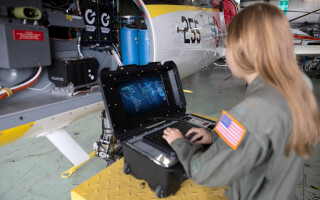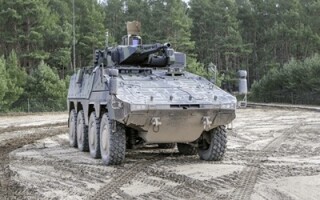U.S. Army tests Integrated Battle Command System with new missile defense capability
NewsDecember 10, 2024

HUNTSVILLE, Alabama. The U.S. Army’s Integrated Battle Command System (IBCS), developed by Northrop Grumman, demonstrated its ability to integrate with the Army’s emerging Indirect Fire Protection Capability (IFPC) system during recent flight tests at White Sands Missile Range, New Mexico, the company announced in a statement.
During the tests, IBCS detected, identified, and tracked two surrogate unmanned aerial vehicles and a surrogate cruise missile before engaging and neutralizing the maneuvering targets with the IFPC system, the statement reads.
IBCS is a modular, open-architecture mission command and fire control system that enables interoperability across sensors and weapons platforms, according to the company. By fusing sensor data into a unified operational picture, IBCS is designed to allow warfighters to make more informed decisions and respond to complex threats, the statement reads. It has been fielded in Poland and is planned for deployment in the Defense of Guam as part of the Army’s modernization efforts for integrated air and missile defense.
The tests focused on IBCS’s ability to integrate with multiple sensors and shooters, including platforms such as Patriot, Sentinel, F-35, and Lower Tier Air and Missile Defense Sensor (LTAMDS).






